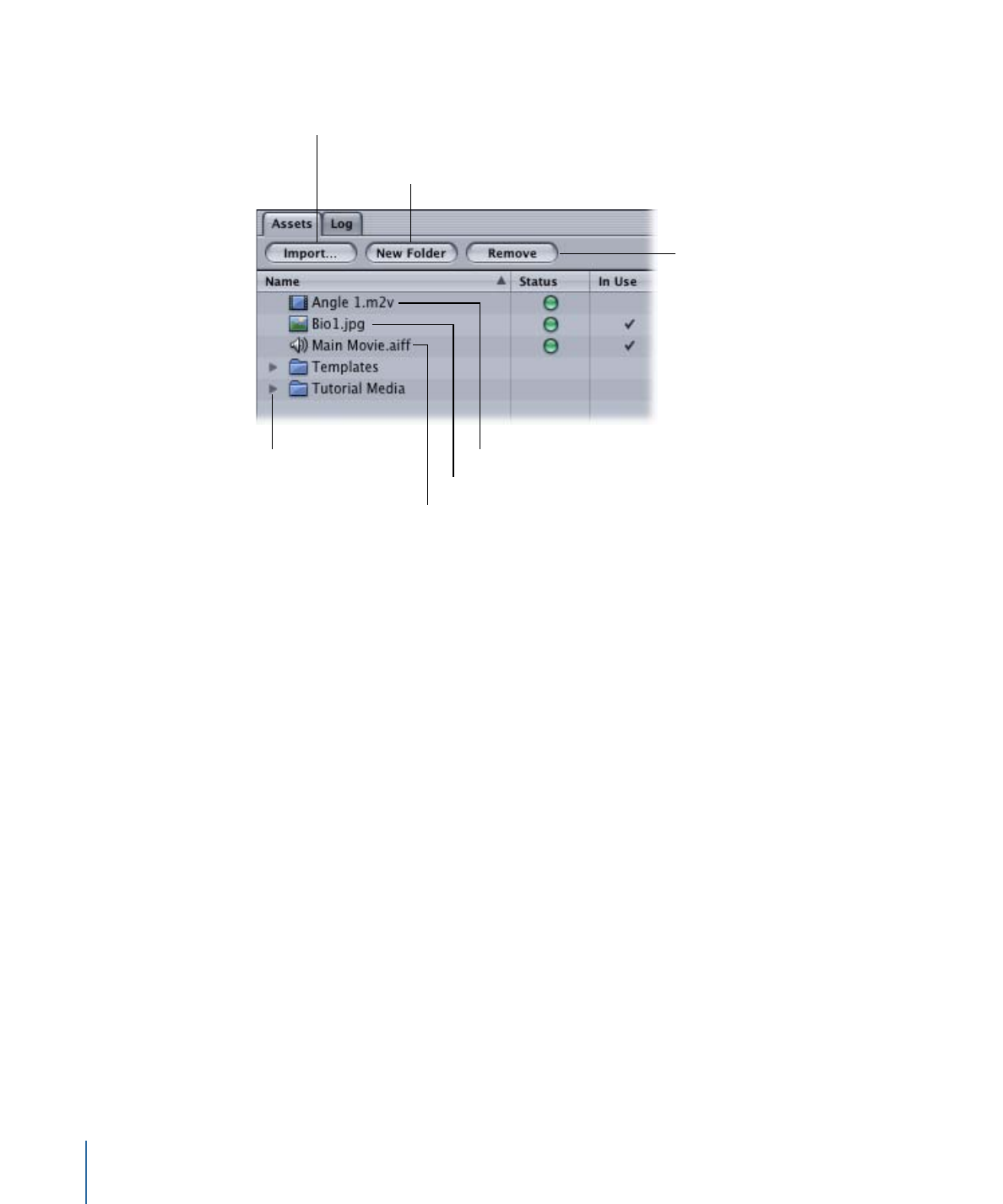
About the Assets Tab
The Assets tab displays a list of all assets imported into the project, whether they were
directly imported to the Assets tab or dragged to the Menu or Track Editor from the
Palette or a Finder window.
About QuickTime Files
QuickTime files often contain a video and audio stream. When you import a QuickTime
file with both video and audio, it is displayed in the Assets tab as two files, each with
the same name, one with the video icon and the other with the audio icon. The Type
column lists them as QuickTime Video or QuickTime Audio. In most cases, these files
are encoded with the integrated MPEG or AIFF encoder. You can re-encode the video
files by Control-clicking them, then choosing Encoder Settings from the shortcut menu.
An exception is the HDV and H.264 QuickTime files you can import into HD projects.
These QuickTime files do not require encoding with the integrated MPEG encoder and
cannot be re-encoded.
201
Chapter 11
Importing and Managing Assets

Note: Subtitle text files and shapes do not appear in the Assets tab.
Video icon
Still image icon
Audio icon
Click a folder’s disclosure
triangle to show or hide
its contents.
Click to open the
Import Assets dialog.
Click to create
a new folder.
Click to remove
the selected asset.
The Assets tab can contain up to 15 columns. For information on choosing which columns
appear, see
Managing Columns in the Assets Tab
.
The Assets tab also has three buttons you can use to manage the assets.
• Import: Opens the Import Assets dialog so you can choose assets to import. See
Using
the Import Asset Feature
for more information.
• New Folder: Creates a new folder in the assets list. If you have an existing folder selected,
the new folder becomes its subfolder. See
Creating Asset Folders
for more information.
• Remove: Removes the selected asset or assets, including folders, from the assets list. A
message appears if you try to remove assets that are currently in use by the project.
This does not affect the asset’s actual file—it just controls whether it appears in this
list. See
Removing Selected Assets
for more information.